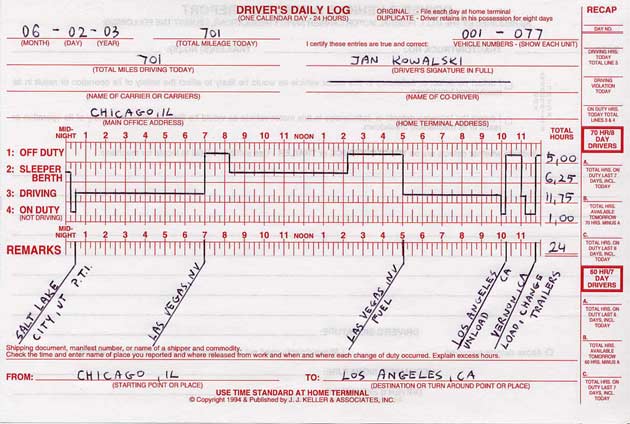Nearly 4,000 people die in large truck crashes each year and driver fatigue contributes to 40% of all large truck crashes.
Your mother was right: you need a good night sleep to perform well the next day—and in trucking terms, good night sleep is essential so drivers can drive their big rigs safely. It is undeniable that long work hours, without sufficient recovery time, lead to reduced sleep and chronic fatigue. Fatigue leads drivers to have slower reaction times and a reduced ability to assess situations quickly. One of the most dangerous elements of fatigue is how quickly it can sneak up on vehicle operators. Truck drivers (like most people) often cannot assess their own fatigue levels accurately and are unaware that their performance has degraded. Too often, for example, fatigued drivers fail to notice that they are drifting between lanes.
Because the problem of fatigued driving is so dangerous, many laws to try to keep drivers alert and attentive have been put in place. For example:
- 1. Truck drivers may only drive a maximum of 11 hours (and work a total of 14 hours) after 10 consecutive hours of not driving or working.
- 2. Drivers may only drive for 60 total hours within 7 consecutive days or 70 total hours within 8 consecutive days.
- 3. Drivers must keep a logbook showing their on-duty and off-duty time.
In December of 2011, the Federal Motor Carrier Safety Administration, which is in charge of regulating commercial vehicles and their drivers, issued a new rule to stop fatigued driving by making changes to the “hours of service” rules for truck drivers. The rule was complicated, but it basically boiled down to two updated requirements:
Why Investigating Truck Driver Fatigue Matters to Your Case
After a truck wreck, your lawyer should obtain and analyze the truck driver’s log book to see if the driver was on the road for too long. This is what a log book entry will look like:
Your attorney should learn everywhere the driver went on the trip and at what time he arrived at each destination—this can be done by getting all receipts, delivery logs, and other documents that show where a driver was and at what time. Then, your lawyer should chart the truck driver’s path using the receipts and delivery logs and compare that with the truck driver’s logbook—if they do not match, then the truck driver may be hiding the fact that he is driving for too long.
During the driver’s deposition, your lawyer should ask the driver about how often he had slept prior to the crash. Your lawyer should check the driver’s phone records and social media accounts for the times that he was calling, texting, or posting things because those will prove the driver was awake. Your lawyer should also ask the driver if he was taking any mediations to either help him sleep because he was not able to on his own or to keep him awake because he was tired. Cell phone records may look like this:
You attorney should also investigate the policies and motives of the trucking company. The company should have polices to encourage drivers to get enough rest and drive safely. But, many companies are motivated purely by profit—those companies incentivize drivers to drive longer and faster than they should by paying drivers per load or per mile. In those instances, the more deliveries and more miles the driver logs, the more money the driver and the company make. In turn, those drivers who need to get places faster will drive recklessly and sleep less.
If you have been hurt in a truck collision, you want a lawyer who knows how to determine if a truck driver was driving too much, sleeping too little, and fatigued. Rafi, Brown, and Stokes will investigate the truck driver and his company so that you get the recovery you are entitled to.



